The French bulldog started out as a toy version of the English bulldog in the 1800s. These dogs were later crossed with some other breeds to give them their characteristic “bat ears.” With a short coat, button nose, and cropped tail, the Frenchie is a popular apartment dog around the world. The French bulldog is known for being friendly and goofy, but tires easily, and doesn’t tolerate heat well. Read on to learn more about the French bulldog.
Description of the French Bulldog
The French bulldog is a compact, muscular dog, prized for having a lovable, friendly disposition. Generations of breeding for cuteness has flattened their faces even more than English bulldogs.
They come in a variety of colors, including brindle, fawn, white, and combinations of those three colors. Outside of the AKC standard, it’s not uncommon to see Frenchies with black markings, or a black coat. These dogs have characteristic bat ears, and should have a very short tail that’s held low. They should not have their tails docked to achieve this look.
The Frenchie appeared in the mid 1800s in some English cities, as the smallest possible version of a bulldog grew popular. As some English lace makers emigrated to France, they brought their little bulldogs. They bred the toy bulldogs with other breeds – probably pugs or terriers. This resulted in the Frenchie’s upright ears, which were cemented as breed standard by the Americans.
The French bulldog was perfected and popularized in France, particularly in Paris. The English didn’t take kindly to the French adapting the bulldog, which had become a national symbol. The Frenchie was admitted into the AKC in 1898.
Life Expectancy and Size
Like many short-nosed breeds, the French bulldog generally doesn’t make it into its teens. The average lifespan for this breed is only ten to twelve years old.
The Frenchie stands just 11-13 inches tall, and weighs under 28 pounds. This makes them relatively heavy for their height – a toy poodle is just a bit shorter and weighs as little as four pounds. This is not to say that the French bulldog should be fat. It is important to keep Frenchies fit and slim to lengthen their lives.
Protective Ability
The Frenchie is generally charming and friendly with family and friends. While they don’t bark much and stand just a foot tall, they can be natural watchdogs thanks to an alert nature. Their small stature makes it unlikely that they’ll do much damage to an intruder.
Training
French bulldogs can range from total training fanatics, to stubborn rebels. They generally respond well to treat-based training, and many enjoy working in exchange for a round of tug-o-war. Their ultra-short noses mean that it’s quite dangerous to use any sort of neck collar on this breed, including training collars. Frenchies should be trained using treats, toys, and praise to teach them how to behave properly.
When properly motivated, many Frenchies are exuberant learners who enjoy nosework, obedience, and other low-impact sports. They should not be allowed to overexert themselves in sports like agility, and caution should be taken if allowing them to swim.
Energy Level
Much of this breed’s popularity is due to easy care. The French bulldog easily adapts to a relatively low-activity lifestyle. This breed is quite the couch potato, especially in hot weather. A few short walks per day will generally do the trick. On hot days, playing training games with you Frenchie is a safer way to burn off excess energy.
What Living with a French Bulldog is Like
The French bulldog is the perfect starter dog for many inexperienced owners. They have minimal exercise and grooming needs, and they tend to be friendly with others. That said, the Frenchie can have a lot of health problems that make him an expensive first dog. They don’t do well with much exertion, and do poorly in the heat.
With proper socialization, the French bulldog can be a great choice for homes with kids. As long as they get enough opportunities to socialize with people, and go outside for the bathroom, the French bulldog does quite well in busy homes.
This breed isn’t a good choice for homes that want an athletic companion to join on hikes or jogs.
Care of the French Bulldog
The allure of this breed is partially due to their low care needs. While they still need daily walks and playtime, the French bulldog is on the lower level of time commitment for dogs. That said, their health concerns can make them into a time-consuming pet later in life.
Environmental Needs
The French bulldog is extremely susceptible to heat. Their ultra-short noses make panting difficult, and this dog quickly overheats. This also means that this dog is not well-suited to high levels of activity or swimming. They have a short, smooth coat that does not help much in the winter. Some Frenchies are quite hardy in the cold, while others may benefit from a jacket.
Exercise Needs
The French bulldog is one of the lowest energy dog breeds in its size range. While many similarly-sized terriers and toy breeds really enjoy a good romp, the Frenchie tires easily and overheats quickly. They generally do best with a few short walks, some playtime, and puzzle toys while you’re at work. You should avoid overly strenuous activity with your Frenchie.
Thanks to its heavy front end and ultra-short nose, the Frenchie should not be left unattended near any body of water. They’re notoriously terrible swimmers.
Shedding and Grooming
This breed sheds less than some other short-haired breeds, and require minimal grooming to keep its coat clean. However, like all dogs, they should be brushed and bathed occasionally to rid their coat of dirt and oil. While you’re at it, ensure that your Frenchie’s nails are trimmed and ears are cleaned.
Ideal Home Environment
This breed does well in a wide variety of homes. With proper socialization, the French bulldog does well with children. This dog can also succeed with elderly or busy owners, as well as single owners.
Thanks to their low grooming needs, outgoing personality, and low energy, Frenchies can thrive in many types of home.
Health Concerns
Many of this breed’s health concerns are thanks to its ultra-short nose. These dogs are prone to breathing issues that make it dangerous for them to swim, exercise, or even just exist in hot and humid temperatures.
They are also prone to cherry eye, cataracts, allergies, and other eye issues. Finally, the French bulldog is vulnerable to hip, knee, and heart issues. Ask your breeder to see proof of hip, knee, eye, and heart exams before bringing home a puppy.
Behavior Problems
Early socialization and training of French bulldogs should focus on teaching them to be friendly with strange people and dogs. Teaching your Frenchie that he can earn rewards by behaving well will help reduce the breed’s stubborn tendencies.
That said, Frenchies are not known for being particularly prone to any behavior problem. Picking a puppy from a reputable breeder and bringing your puppy to puppy kindergarten will further stack the deck in your favor.
If you have any concerns about your dog’s behavior, contact a dog behavior consultant. A behavior consultant is far more skilled at dealing with problem behaviors than an average obedience trainer. Avoid trainers who rely heavily on corrections, particularly thanks to the dangers of using training collars on short-nosed breeds.



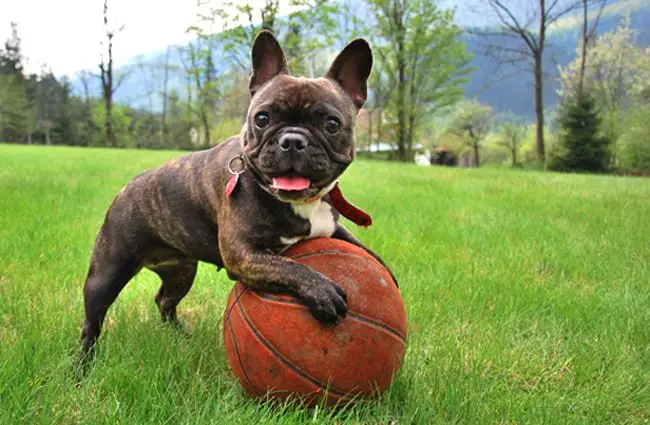

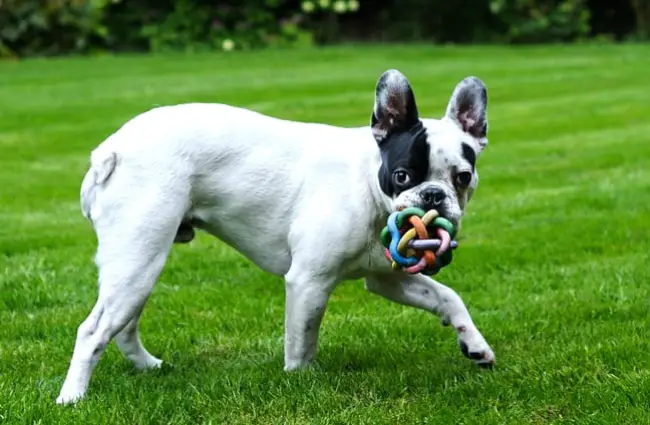





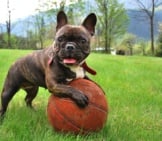






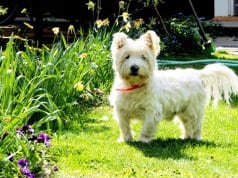


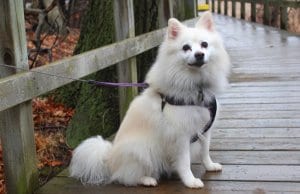








![Red Angus Closeup of a beautiful Red Angus cowPhoto by: U.S. Department of Agriculture [pubic domain]https://creativecommons.org/licenses/by/2.0/](https://animals.net/wp-content/uploads/2020/03/Red-Angus-4-100x75.jpg)

